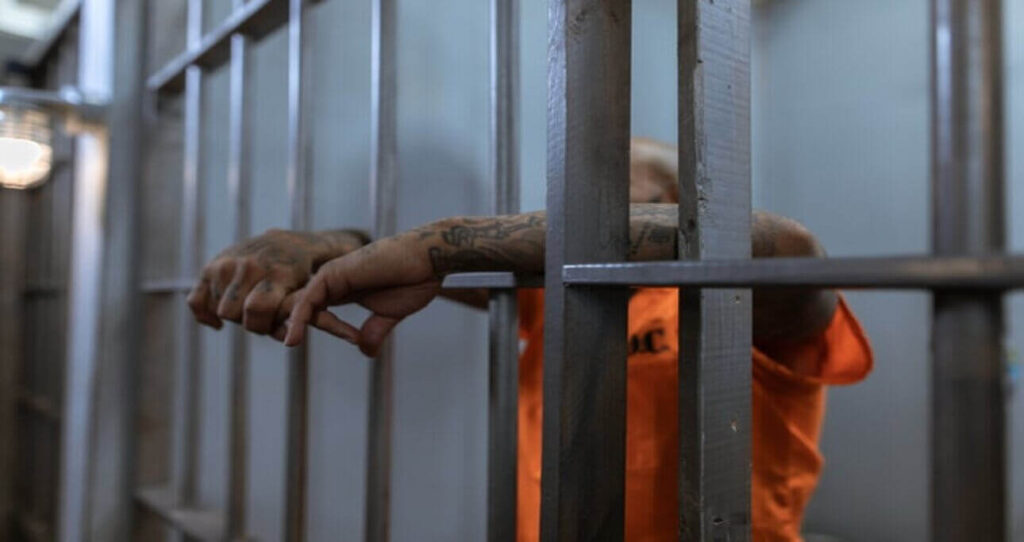“It is said that no one truly knows a nation until one has been inside its jails. A nation should not be judged by how it treats its highest citizens, but its lowest ones.”
– Nelson Mandela
INTRODUCTION
A prison is a place where a person is kept as a punishment. When a person does any major offenses, he is confined in a building called prison. Prisons have existed since archaic times. A society cannot be devoid of crime and criminals which is why prisons are crucial for every country. In India, there are various laws governing prisons and prisoners’ rights. Today many programs have been launched in reforming prisoners. But still because of corruption and misuse of power many innocent prisoners especially men are treated inhumanely.
RIGHTS OF PRISONERS
It is important to know that if a person is convicted it does not make him a prisoner. They are also human beings and should be treated humanely. He should be given freedom but with limitations.
The prisoners of our country are given basic fundamental rights as mentioned in Articles 14, 19, and 21 of the Indian Constitution. Article 22 of the Indian constitution gives an arrested person some basic rights like the right to be informed of the grounds of arrest, the right to consult and be defended by a legal practitioner, the right to be produced before a magistrate within 24 hours, and right to be released after 24 hours unless the magistrate further orders. The right to privacy is also given to prisoners who cannot be compelled to answer questions during an investigation. The right to life and personal liberty given to prisoners is that right in which a person can enjoy more than physical existence. In the Maneka Gandhi v. Union of India case the supreme court held the same.
Justice delayed is equal to justice denied which is why prisoners are given the right to a speedy trial. The right to speedy trial involves the punishing or vindication of the accused person. The right to a speedy trial is also given in section 309 of the Code of Criminal Procedure, 1973. No one should be made subject to long, pending, and exhausting trials because it not only violates a person’s rights but is also considered a denial of justice.
The right to get medical treatment is also one of the basic rights that prisoners get to safeguard their life. In the case of Rasikbhai Ramsing Rana v. State of Gujarat, the Gujarat High Court held that the right to medical treatment is one of the fundamental rights which is given to every prisoner. The court held that proper mental and physical care should be taken when a prisoner is suffering from any injury.
In the ADM Jabalpur v. Shivkant Shukla case, the supreme court held that illegal confinement is against the law.
PROBLEMS OF PRISONERS IN INDIA
Despite having humongous legislation, the condition of prisoners is not decent. They are thrown to the verge of death especially if they are from a lower section of society. Some of the case laws related to it are as follows:
Recently in the case of Mohd. Sumer v. State Govt. Of NCT of Delhi, the appellant filed his appeal before Delhi high court that he and his inmates were mercilessly beaten by jail staff and police officials without any provocation. Even they were not given proper food and were kept in a single cell. The Delhi High court ordered a summary inquiry to be conducted by a metropolitan magistrate.
Asiya vs the State of Maharashtra, the offender died while he was in custody, and after his death, police officials tried to destroy the material evidence related to his death.
In 2022, it was found that the Arthur Road Jail Prison is overcrowded, has terrible health conditions, and practices of sodomy and excessive corruption. Despite the revenue deficit being Rs 24,353 crore for the maintenance of the prisons, the situation of the prison is awful. The other problems of prison include overcrowding, physical abuse, torture, harassment excessive pendency of cases, lock-up deaths, severe hygiene conditions, corruption, inadequate diet, stinking atmosphere.
SUGGESTIONS
Prisoners should be provided with the proper rehabilitative program so that they can contribute something productive to our society. The rehabilitation program also helps in changing the behavior and personality of prisoners. They should work on the principle of “bail as a rule and jail as an exception”. Our media can also play an important role in presenting reports on the conditions of prisoners. More prisons should be developed to prevent overcrowding. Provisions of free legal aid should also be disseminated to prisoners and their prisoners.
CONCLUSION
The prison should have the facility to reform the offender and give back to society. They should be provided with proper rehabilitation to improve and become better human beings. The central and state government should also provide educational facilities. The prison should also be an institution where they can get human rights besides amenities.
Author’s Name: Harshita (Army Institute of Law, Mohali)


